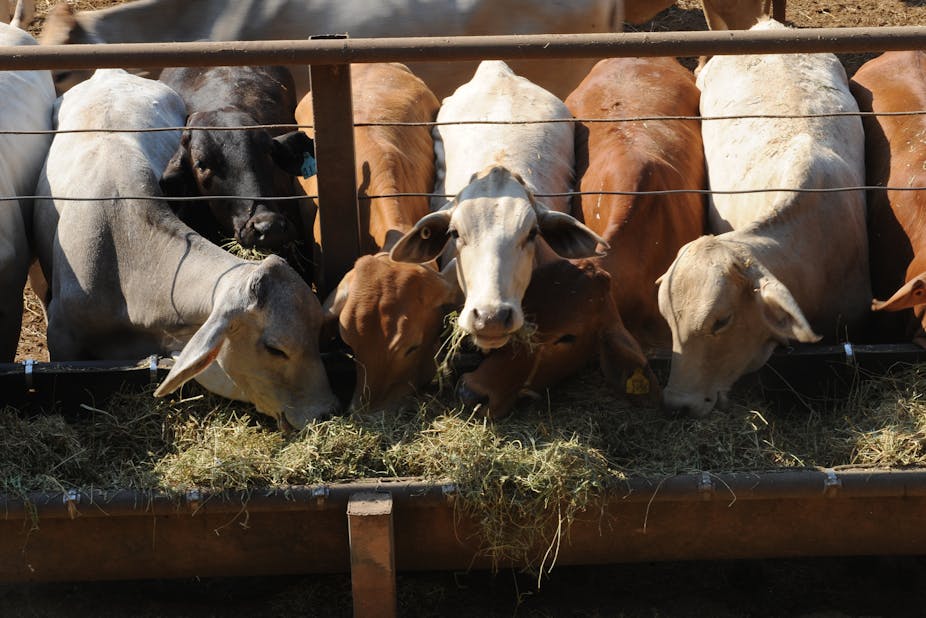On Thursday August 18, two bills were introduced in the Australian House of Representatives.
One was the “Live Animal Export Restriction and Prohibition Bill 2011”, introduced by Independent Member for Denison, Andrew Wilkie.
The other, introduced by Greens Member for Melbourne, Adam Bandt, was the “Live Animal Export (Slaughter) Prohibition Bill 2011”.
The bills sought to end the live animal export trade, with the Greens’ bill effective immediately and the Wilkie bill calling for a three-year rollback period.
Both bills were comprehensively defeated.
The bills followed graphic footage aired on Four Corners showing Australian-bred cattle being brutally killed in Indonesian abattoirs.
The two bills are quite extraordinary for a number of reasons.
First, animal welfare is generally the responsilbity of the states and territories. The Australian government does not have power over most animal welfare matters, and rarely involves itself.
A significant exception pertains to the import and export of animals. Since concern over live animal exports has increased, the Australian government has been far more involved in animal welfare management.
Second, the introduction of the bills was possible due to the currently extraordinary constitution of the House of Representatives. This is the first time a member of the Greens has won a federal lower house seat at a general election.
And Gillard’s minority government status means the voices of lower house independents are louder than they would be under any other circumstance.

Third, Animals Australia, the RSPCA, the many thousands of people who attended the anti-live animal export rallies around Australia on the Saturday before the bills’ introduction, and even some Members of Parliament, called for the Prime Minister to permit a conscience vote.
It is this third peculiar feature that I would like to consider further.
A research paper published by the Australian Parliament says conscience, or “free votes”, tend to be limited to a small range of matters:
“life and death” issues, such as abortion, euthanasia and capital punishment
human reproductive and scientific research issues, such as in vitro fertilisation, stem cell research and therapeutic cloning
social or moral issues, such as family law, homosexuality, drug reform, war crimes and gambling
parliamentary procedure and privilege issues and standing orders.
All the bills for which MPs have been permitted a conscience vote over the last 60 years fall into one of these categories. Given that trend, it is curious that anyone thought a free vote on live animal exports might be permitted.
The logic behind the call for a conscience vote is probably linked to a number of things.
Some Members of Parliament, including MPs from the major parties, have publicly criticised the live animal export trade. Animals Australia carries a list of declared anti-live animal export MPs on its website. There is a sense that this is a deeply felt issue.
Furthermore, an enormous number of Australians responded passionately to the Four Corners footage.
But the issue of live animal exports is considerably different to other issues where MPs could vote according to the dictates of their conscience.
The key difference is the sizeable financial investments, and returns, tied up with the live animal export trade.
The overtly economic nature of animal agriculture means a conscience vote on the issue is almost unthinkable.

All this is not to suggest that all is now lost from the perspective of the hundreds of thousands of animals exported live out of Australia each year.
Far from it.
I have been monitoring animal activism and animal welfare legal reform for more than 15 years. The momentum around live animal exports is quite astonishing.
Live exports have survived until now because of the principle of “necessary suffering”, which lies at the heart of animal welfare law in Australia and around the world. That principle dictates that it is wrong to cause an animal to suffer, unless that suffering is necessary.
What constitutes “necessity” is of course highly contested ground. But in most advanced liberal democracies necessity has come to be associated with standardised, mass animal use, usually for an economic purpose.
It is for this reason that random acts of violence towards a companion animal are prohibited, but the keeping of animals in highly confined conditions, as occurs in factory farms, is not.
While it is true that the necessary suffering principle permits a greater amount of animal suffering when economic interests are at play, it is not a principle that can withstand scrutiny.
At some point even the most economically advantageous activity will become difficult to justify when the suffering of the animals is sufficiently great and brought to the community’s attention.
I expect that to happen in the case of live animal exports.
I don’t expect it occur imminently, but I do expect it to happen sometime soon.

